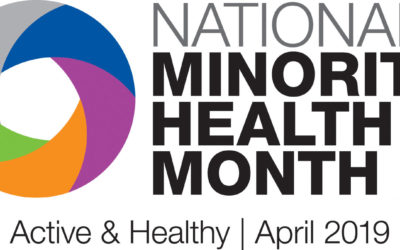
MAY IS LUPUS AWARENESS MONTH:
PUMP UP THE PURPLE!
Have you noticed a lot of people donning the color purple this month? It could be because May is Lupus Awareness Month. “Pump up the Purple” is the call to action for a campaign to raise awareness and funds for lupus research and education programs.
Lupus is a chronic auto-immune disease that can adversely impact many parts of the body. There are several different kinds of lupus, and no two cases are alike. Many scientists believe lupus develops in response to a combination of factors within and outside the body, including hormones genetics and the environment. Roughly five million people around the world are estimated to have lupus, including 1.5 million in the United States. Some 16,000 new cases of the disease are reported each year, developing mostly in younger people, ages 15-44.
Ninety percent of patients living with lupus are female, and research indicates that minority women are two to 3 times more likely to contract the disease than their white counterparts. A 2014 study conducted by the Michigan Lupus Epidemiology and Surveillance Program minority women tend to develop lupus at a younger age, experience more complications and have higher mortality rates.”
According to the Lupus Foundation of America, nearly two-thirds of the general public no little or nothing about the disease beyond its name. To help change that and combat the disease, here are some facts that you should know:
- Lupus is not contagious. You cannot catch it or give it to someone else.
- While there have been findings that indicate that genes may somehow figure into the development of lupus, no one gene or group of genes has been proven to cause lupus.
- Lupus is often referred to as the “great imitator” because its symptoms mirror those of many other diseases, often making it difficult to diagnosis and, as a result, to treat.
- People with lupus report experiencing a variety of symptoms including recurring low-grade fevers; extreme fatigue; butterfly-shaped skin rashes; joint pain and swelling; hair loss; ulcers on the nose or in the mouth; chest pain or breathing problems, kidney inflammation; gastrointestinal problems; blood clotting and anemia. The occurrence of these symptoms is often referred to as flares or flare-ups. They can vary in intensity, degree, and frequency.
- Lupus is not easy to diagnose, and it may take months or longer to confirm. People experiencing four or more of its symptoms with no other explanation for why they are occurring are encouraged to discuss lupus with their doctors.
- Lupus is generally diagnosed by providing your doctor with a complete and accurate medical history; undergoing a physical examination, X-rays and lab tests. It is not uncommon for a medical practitioner to refer a patient to a rheumatologist who specializes in diagnosing, managing and treating the disease.
- Early diagnosis, as well as avoiding triggers such as excessive exposure to the sun, can help in managing lupus. A rheumatologist can treat lupus with a variety of medications that can slow the progress of the disease and help lessen the discomfort associated with its symptoms.
- While there is presently no cure for lupus, understanding the disease, how it presents itself, and possible triggers can help patients prevent flare-ups or make the symptoms less severe. Experts agree that the best course of action is to work closely with a doctor to develop, review and, when necessary, revise a treatment plan. While some people die from the disease, with close follow-up and treatment, research indicates that 80-90 percent of people living with lupus can expect to live a normal lifespan.
To learn more about lupus, visit the Lupus Foundation of America at https://www.lupus.org.
Information and statistics cited in this article were derived directly from the following sources:
https://www.lupus.org
www.lupusawarenessmonth.org/gopurple.html
https://resources.lupus.org/entry/facts_and_statistics
www.health.facty.com/conditions/lupus/10-symptoms-of-lupus/
www.lupuscorner.com
OTHER NEWS
April Is National Minority Health Month
This April, join The Black Women’s Agenda, Inc. in celebrating National Minority Health Month. This year, the U.S. Department of Health and Human Services Office of Minority Health (OMH) will join partners in raising awareness about the important role an active lifestyle plays in keeping us healthy. Their theme for the 2019 observance is Active & Healthy, which will “allow OMH and minority health advocates throughout the nation to emphasize the health benefits of incorporating even small amounts of moderate-to-vigorous physical activity into our schedules.
Black Women Focus on Aging Mastery
The Black Women’s Agenda recently hosted a summit themed, “I Am the Change: Living Your Best Life at Every Age,” at Morgan State University in Baltimore, MD. Sponsored by AARP and featuring leading experts in the fields of health, education, and economic security, the event focused on the importance of health and wellness in the aging process.
“Too often black women are focused on everyone and everything except themselves,” said panel moderator Dr. Rockeymoore Cummings. “Our concern for and work on behalf of our families and communities competes with our ability to implement self-care strategies that support our physical, emotional, spiritual, and socioeconomic wellbeing.”
March is Women’s History Month
This March, join The Black Women’s Agenda, Inc. as we celebrate Women’s History Month. Congress first declared March as Women’s History month in 1987. Since then, every year there’s a Presidential Proclamation to announce the month and to honor women who have made a notable impact in history.
According to the National Women’s History Alliance, “In February 1980, President Carter issued the first Presidential Proclamation declaring the Week of March 8th 1980 as National Women’s History Week. In the same year, Representative Barbara Mikulski, who at the time was in the House of Representatives, and Senator Orrin Hatch co-sponsored a Congressional Resolution for National Women’s History Week 1981. This co-sponsorship demonstrated the wide-ranging political support for recognizing, honoring, and celebrating the achievements of American women.
© 2025 The Black Women’s Agenda, Inc. All Rights Reserved. Privacy Policy








